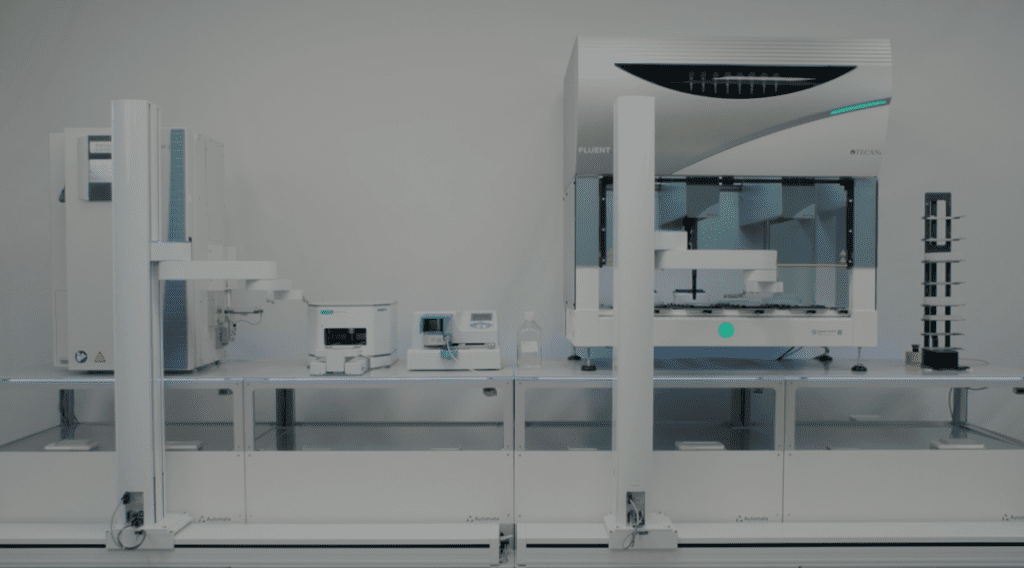
LINQ: The integrated automation platform for early drug discovery
Get market-ready in record time
Talk to an automation expert today
We’ll be in touch shortly
Automata’s workflow automation platform, LINQ, can address bottlenecks at various stages of the drug discovery process, with a focus on specific scientific applications that are most suitable for automation.
Here’s how Automata’s platform can be applied to address bottlenecks at each stage:
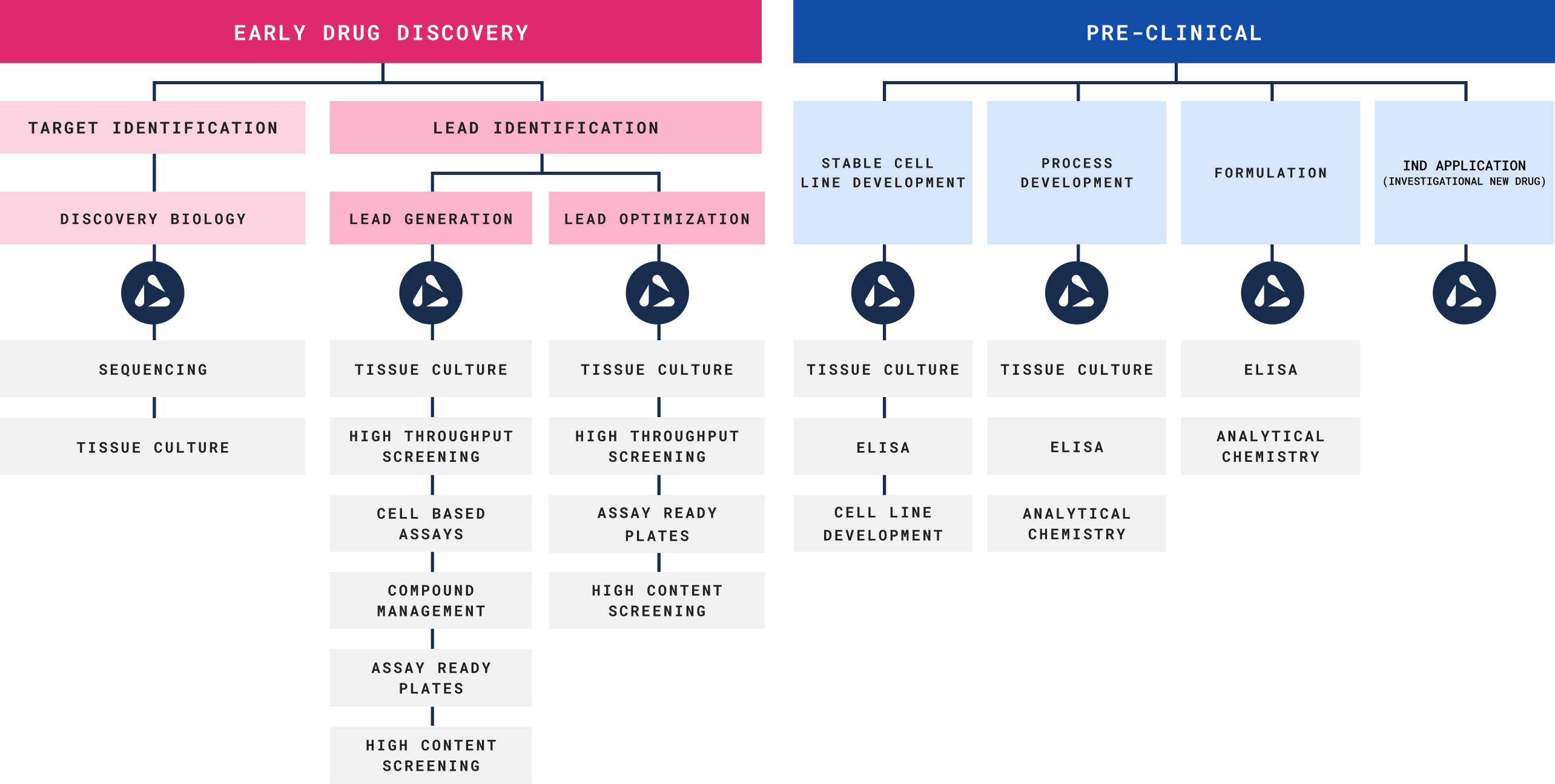
Early drug discovery
Discovery biology
- Sequencing – automation of workflows can increase sample throughput, improve reliability and accuracy, and speed up data output.
- Tissue culture processes can be automated for consistency and precision, such as automated media exchanges, cell passaging, and cell counting.
- Automation of cell culture allows for weekend cell maintenance without the need for monitoring during antisocial hours. This allows for more cells and more experiments per week.
Lead generation
- Automata’s platform can facilitate the high-throughput screening process, including the automated preparation of assay plates.
- Compound management, storage, and retrieval can be automated to accelerate lead generation. When this is integrated into the assay platform, there is more robust sample tracking and data management.
- Automated liquid handling can optimise cell-based assays for lead identification. Larger numbers of assay plates can be handled and tracked, giving bigger, more complete data sets. Assays can be run out of hours for faster throughput.
Lead optimisation
- Automata’s platform maximises the optimisation of lead compounds by automating cell-based assays and high-content screening.
- Automated preparation of assay-ready plates and tissue culture processes ensures efficiency. Automation can generate more assay-ready plates faster and more reliably than manual workflows.
Pre-clinical
Stable cell line development
- Automata's LINQ platform can assist in automating the selection and maintenance of stable cell lines, including monitoring cell growth and protein expression levels.
- ELISA assays can be automated for consistent and high-throughput analysis.
Process development
- Automation streamlines analytical chemistry processes, including data analysis and reporting.
- Tissue culture processes, such as media changes and cell maintenance, can be automated and iterated for optimisation.
Formulation
- Automated QC systems ensure precise and consistent upstream and downstream process compliance in the preparation and manufacture of drug formulations.
Investigational new drug applications
- Automata's platform can help manage the data and documents required for IND applications. It ensures accurate and efficient data collection and reporting to regulatory agencies, facilitating the final step in the pre-clinical phase. LINQ has full data and sample tracking, and an audit trail for data integrity.
How the LINQ Platform works
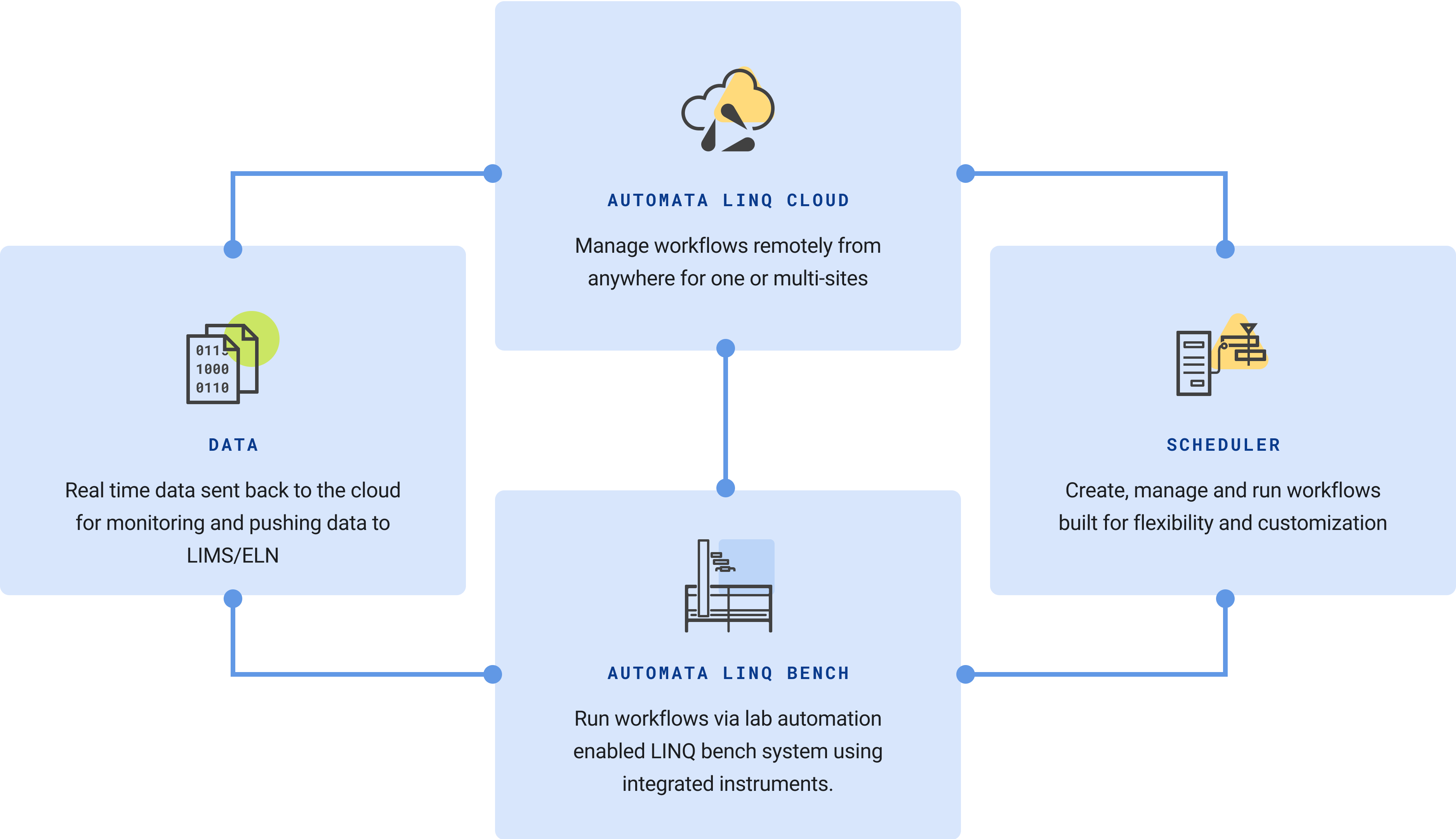
From small steps to giant leaps: Automata adapts to your current automation journey
We understand that every organisation has unique needs, and that's why our platform is designed to be flexible and modular. With Automata, you can start small, addressing specific bottlenecks at any stage of your drug discovery journey, and then expand your automation initiatives as your needs evolve.
Explore our examples below: a smaller media exchange workcell, and an extended cell line development workcell. Whether you start small or expand, Automata's LINQ Cloud makes reprogramming and integrating extra automation seamless.
Automating media exchange in
cell culture workflows
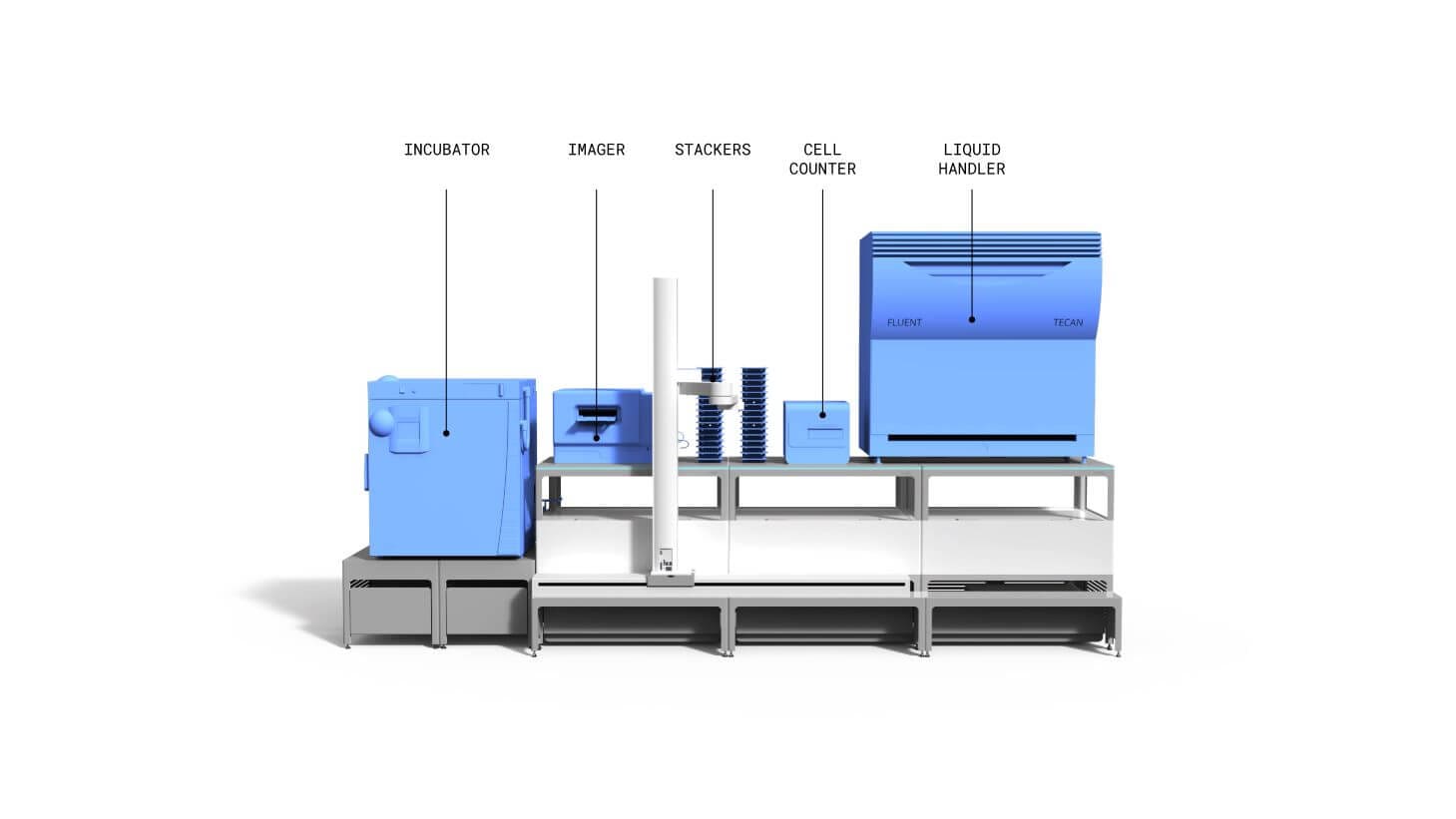
An image of LINQ automating a media exchange workflow
Unlocking scale in
cell line development
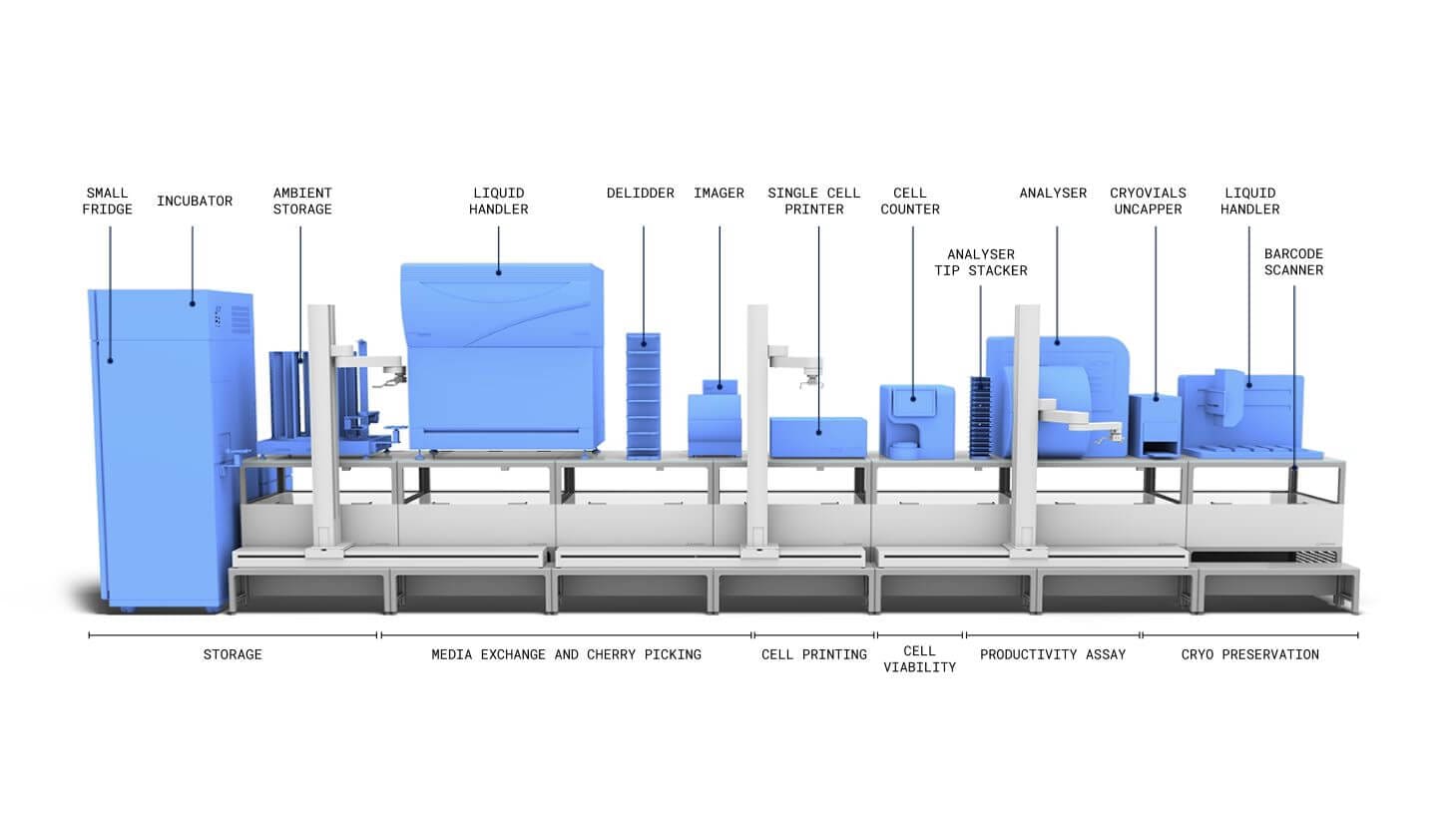
An image of a cell line development workflow set up and automated with LINQ
Further reading

How can lab automation help ensure that the data we generate now...
Read more Data & Reproducibility: Single Source Of Truth In The Lab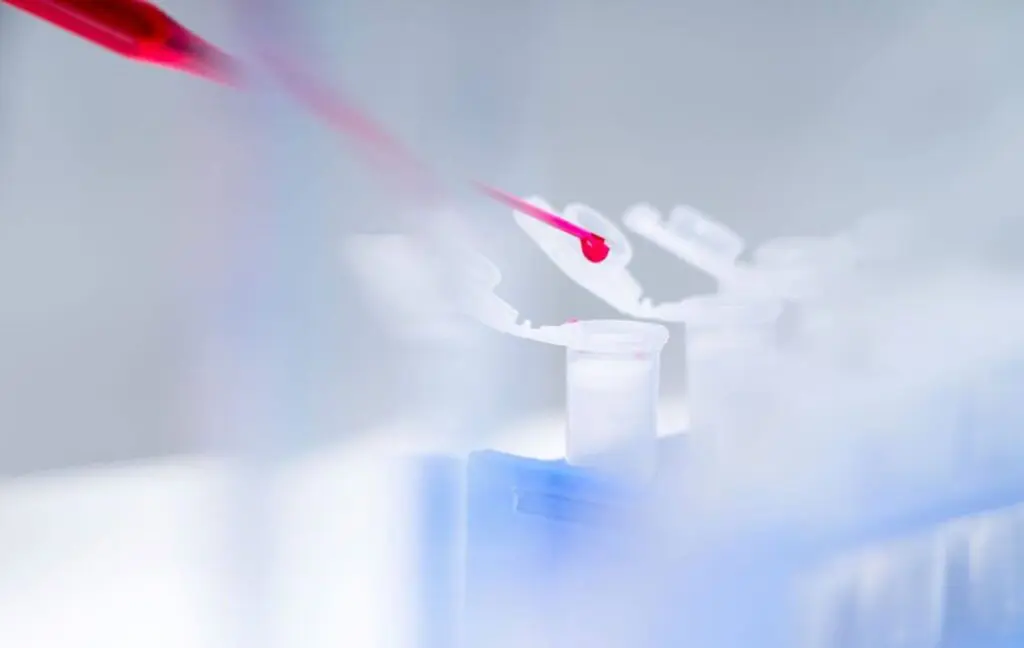
Find out how open, integrated automation can accelerate the ELISA validation process...
Read more ELISA assay validation: how automation can helpExplore other automation solutions
ELISA
Increase throughput and traceability while reducing errors with automated ELISA
High throughput screening
Automates complex compound screens with multiple analytic readouts and fewer errors with LINQ
Solutions for CROs
Transform the speed and quality of throughput and data with flexible automation
iPSC
Transform the output and reliability of your stem cell data with automation for iPSC cell culture workflows

Your partner from design to deployment, and beyond
A service offering centred on a culture of hypercare
Our dedicated team of specialists represent the largest service support team in automation, ready to walk you through every step of your journey from international deployment to support.